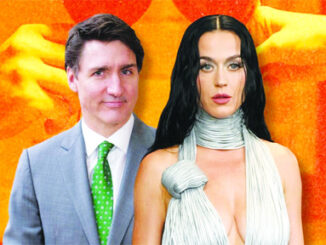
What a cliff-hangar it was! Even Hollywood could not have provided this sort of dramatic script. First, it was Senate which passed, in the early hours of Tuesday, January 1 Fiscal Cliff deal potentially averting a disaster not only for the tax payers but for the US economy itself. Then, it was the turn of the House to pass this bill, also late evening on Tuesday, overcoming opposition from conservative Republicans. The month of December saw quite a bit of nail-biting drama as both the sides, Democrats and Republicans, tried to one-up each other in negotiations. Democrats wanted to hike taxes on those making more than 250,000 along with other items like hike in estate taxes but offered no spending cuts, while Republicans wanted to preserve all of the bush-era tax cuts while proposing serious curtailment to the entitlement programs like Social Security, Medicaid, Medicare etc., items which were off limits to Democrats.
The impasses in negotiations were making markets nervous – the Dow Jones index was see-sawing wildly. The confusion on tax rates was also beginning to grow. With the looming deadline of December 31, speaker Boehner tried to rekindle the negotiations by devising another plan – the so called Plan B -, which would permanently extend almost all of the tax cuts enacted under President George W. Bush for all households under $1 million, thus sparing majority of the Americans from the expiration of the bush-era tax cuts while raising the taxes on those making more than 1 million per year. But the plan was doomed from the start. Not only Speaker Boehner failed to get the support from the anti-tax conservative members of his party, the plan would not have even passed the Democratic controlled Senate. In the end, realizing that the Plan B was not going anywhere, Speaker Boehner pulled it from consideration.
With the House unable to provide any measure to avert the fiscal cliff, it was left to the Senate to craft a deal.Working directly with Vice President Joe Biden, Minority leader Mitch McConnell, in barely two days, formulated and passed the bill by a lopsided 89-8 margin in the early hours of Tuesday, underscoring the anxiety felt by both sides which would have not only plunged the economy back into severe recession but would have had disastrous and negative impact on the world economy. But what is Fiscal Cliff ? In short, Fiscal Cliff is the term, coined by Federal Reserve Board Chairman Ben Bernanke, that refers to major economic events that would take place in 2013 due to the expiration of the 2010 Tax Relief Act, which extended the Bush-Era tax cuts by two years and Budget Control Act of 2011 which was designed to tackle the Debt crisis of 2011 and which also included mechanisms to reduce the deficit by half by automatically triggering across- the -board cuts, called sequestration, in all domestic spending programs and defense. It was estimated by Congressional Budget Office that the automatic triggering of tax increases and sequestrations, the economy, which is slugging at less than 2 percent per year, would plunge back into recession with unemployment going up to 9 percent.
What if there had been NO Fiscal Cliff Deal? According to CBS Money Watch, the expiration of the tax cuts would bring the system back to 2001 tax rates, Clinton-era rates, which would make everybody’s taxes go up substantially. The paycheck would be much smaller than the previous months. There would also be a lot of confusion in terms of withholding – whether to use 2012 tax rates or to use 2013 tax rates. IRS has issued guidelines that any paycheck cut in the later half of January has to assume that the Bush era tax cuts have expired. This would make paycheck smaller than previous months
Another casualty would come in the form of sequestration, wherein automatic cuts triggered would reduce the budgets of government programs by 8 to 10 percent. Government workers could face furlough anywhere from less than 20 days to longer duration. The cuts would not have to be immediate and can be phased over several weeks by respective government departments. But the cuts would be divided equally between defense and other government programs, which mean everything from Homeland security, public schools to health to what is on the table. More than 2 million unemployed would also see the expiration of their unemployment benefits thereby throwing those more into misery, given the weak employment situation. Even doctors would not be spared. Physicians would see 27 percent reduction in the Medicare payments because congress failed to pass the Doc-Fix that would have addressed the scheduled cuts.
Finally, the US economy would bear the massive brunt. According to Congressional Budget Office, not only it would slide back into recession but the unemployment would also go up to 9 percent. The economy would contract by 1.3 percent in the first half of 2013. Pretty grim. So what is next? Recognizing the severity of the situation, Senate passed with overwhelming margin of 89-8 the so- called deal. The deal would extend Bush-era tax cuts permanently for people making less than $400,000 per year and households making less than $450,000. It would also postpone the sequester for two months. The unemployment insurance has been extended for another year. The deal also affects taxes on investment income and estate taxes. But, still, the drama would not end. The deal passed by the Senate faced uncertain future in the House, where its passage was not guaranteed. Republicans were clamoring for more cuts in the form of amendments and send the bill back to Senate for reconsideration. That would have put the country over the Fiscal Cliff. But, in the end, realizing that they don’t have the votes for spending cut amendments and knowing that they would be blamed for the resulting budget chaos, Republicans reluctantly approved the Senate bill by a bi-partisan vote of 267 to 167, which included most of the house Democrats and less than half of the Republican majority.
But the deal is far from being perfect. It has infuriated not only liberals but conservatives also. Even though Democrats are grumbling about the increase in threshold for tax hike, the Republicans are sore because it does nothing to address the runaway spending and the debt. The deal does not solve the fiscal problems entirely but promises a new, and bigger, battle in two months over the spending cuts and how to raise the debt limit beyond $16.4 trillion. Spending cuts to military and cuts to domestic programs have only been delayed for two months. Republicans have vowed to fight for a new deal that would include significant cuts in government benefit programs like Medicare and Medicaid health care for retirees and the poor, which are responsible for the ballooning federal debt. But, for now, the deal has averted the calamity in the form of immediate tax hikes and resulting economic recession, and has brought the country back from the brink.





Be the first to comment